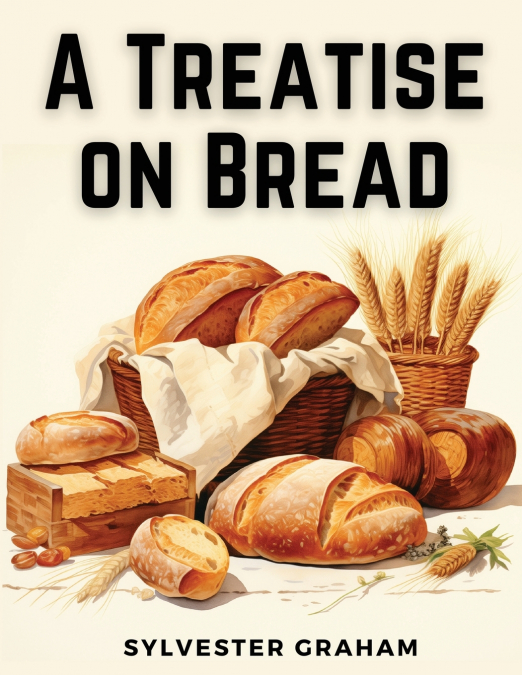
 Librería Desdémona
Librería Desdémona
 Librería Samer Atenea
Librería Samer Atenea
 Librería Aciertas (Toledo)
Librería Aciertas (Toledo)
 Kálamo Books
Kálamo Books
 Librería Perelló (Valencia)
Librería Perelló (Valencia)
 Librería Elías (Asturias)
Librería Elías (Asturias)
 Donde los libros
Donde los libros
 Librería Kolima (Madrid)
Librería Kolima (Madrid)
 Librería Proteo (Málaga)
Librería Proteo (Málaga)
'A Treatise on Bread' is a work by Sylvester Graham, an American Presbyterian minister and dietary reformer who lived in the 19th century. The book, first published in 1837, is a significant piece in the history of dietary literature and health advocacy. Graham was a strong proponent of a vegetarian diet and believed in the connection between nutrition and health.In the treatise, Graham expounds his views on the importance of whole grains, particularly wheat, in the diet. He emphasizes the nutritional benefits of unrefined flour and promotes the consumption of whole wheat bread over the more processed varieties. Graham argued that the prevalent white bread of his time lacked essential nutrients and was detrimental to health.Moreover, the book delves into broader discussions on the relationship between diet, morality, and spirituality. Graham believed that dietary habits had a direct impact on one’s physical and moral well-being. He advocated for a simple and natural diet as a means of achieving not only physical health but also moral purity.Sylvester Graham’s treatise had a lasting influence on the development of dietary theories and health movements in the United States. Graham flour, a type of whole wheat flour, was named after him, and his ideas laid the groundwork for subsequent dietary reform movements, including the advent of breakfast cereals and the focus on whole grains in contemporary nutrition.